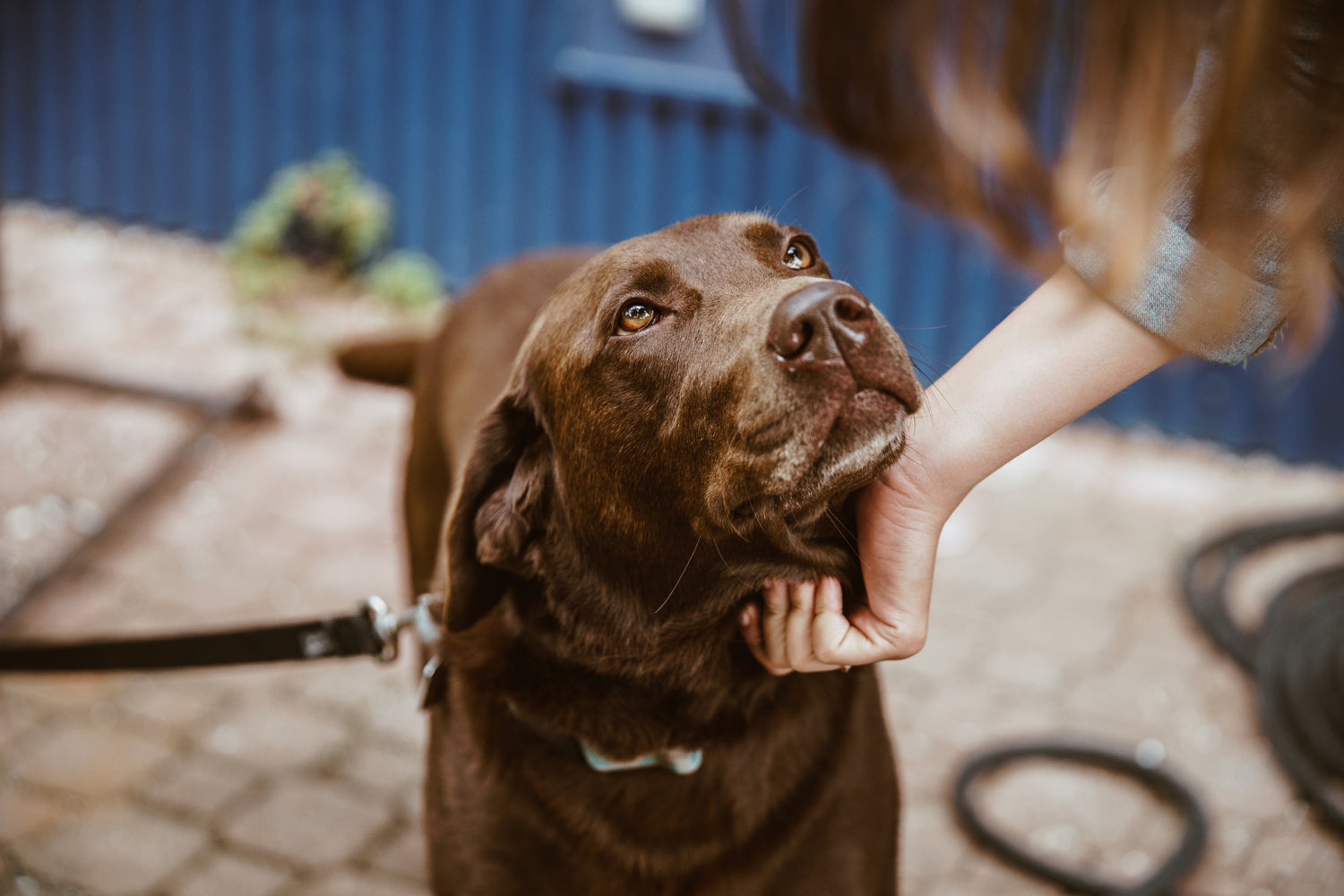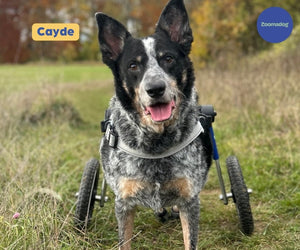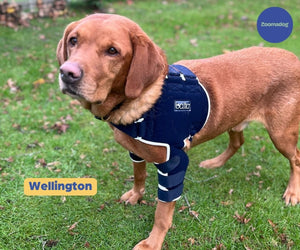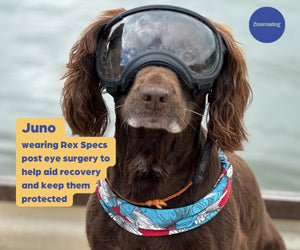01730 622544

Signs your Dog is in Pain
Learning What to Look For
One of the best things we can do to better connect with our canine companions is to learn how to think, look, and listen more like dogs, especially when it comes to pain evaluation. In situations where the pain is more chronic, like bone or joint pain such as arthritis, this can potentially save your dog years of suffering in which their condition otherwise might have gone untreated. Here are the top five signs to look for to ensure your beloved pet never has to suffer
in silence.

1. Slowing Down
As our dogs age, we assume that they inevitably slow down. Though this may be true in some circumstances, it isn't always the complete story. In many cases, dogs will slow down because they are in chronic pain. Over time, dealing with this day-to-day pain begins to wear them out, and they naturally begin to slow down as a result.
2. Sleeping More or Longer
Humans do this one too. Have you ever had terrible body aches from a cold or a debilitating migraine? All you want to do is stay in bed. The key here is to notice anything that is different from the norm in your dog's sleeping behavior. If you notice they are sleeping more, especially in the morning, or go through a sort of ritualistic stretching behavior before getting up that they didn't used to do, it may be an early warning sign of discomfort.
3. Slow to Sit Down or Get Up
For dogs that are in severe pain, even a completely untrained eye can tell they are struggling to get up or down. But to identify the subtle and early changes that may or may not be occurring, watch your pet carefully you know them best. Are they doing anything they didn't before, such as thinking about sitting, thumping themselves down, or walking themselves into a lying down position? Are they more hesitant to get up when you ask them to? These are all indications your dog is suffering.
4. Avoiding or Having Difficulty with Stairs
For dogs in pain, what was once the normal, easy task of going up and down stairs quickly becomes a challenge. In the early stages of chronic pain, you may notice that they slightly hesitate prior to going up the stairs almost as if they need to muster the energy or convince themselves that they can actually do it. In the later stages, they may have to bunny hop, using both hind legs together to push off a step. If you notice this in your dog, there is definitely a problem. 
5. Reluctant to Go on Walks or Not Walking as Far
Most of us walk our dogs on a regular basis, and most of our dogs will regularly lose their minds over the prospect of a walk. Reluctance to go means something is not right. Dogs in pain may gradually not want to walk as far as they used to, and may even sit down and quit mid-walk. If you let your dog out into a fenced yard instead of taking them on walks, watch to see if they are as active in the yard as usual. If not, this may be a sign that something is amiss. If your dog is in discomfort in a specific place, they may lick at it, nibble the area (particularly paws) or show unease when you touch the area. Of course, developing the odd pain is a part of growing up and getting older, but if you notice your dog is displaying one or more of these signs, we encourage you to make an appointment with your veterinarian to further investigate the issue. As loving parents, now is the time to change the way we look for signs of pain in our furry family members, learning to listen to them more carefully with open minds and open hearts. Once your dog has a diagnosis for the cause of the pain, get in touch and we can help. The Support RX harness is great for older dogs who may struggle with steps or longer walks. We also have natural pain relief - Winston's Pain Formula, which also offers an anti-inflammatory for joint pains and can be used on top of any veterinary medication. We have a range of leg supports and splints, cruciate and back braces as well as natural joint supplements which could help your dog, depending on their diagnosis.
Looking for help with your dog?
We can help find the right solution for your dog
Feel free to give us a call on 01730 622544
or email us at woof@zoomadog.co.uk





Leave a comment